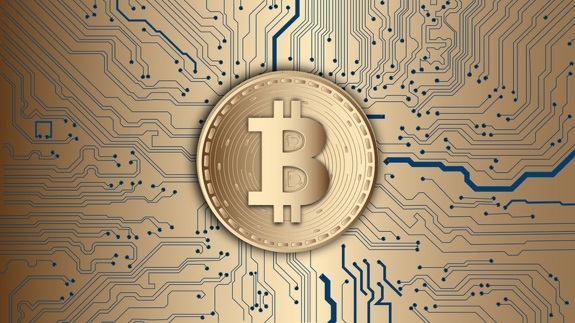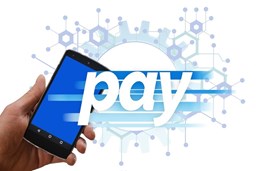After online banking became widely accessible, people wondered how long it’d be before we went wholly digital, but what few expected was that yet another method of money to start to take hold. Over the coming years, technological innovations will continue to change the world of money, and while some unexpected turns will undoubtedly have their say, these are technologies currently taking hold and set to take over money.
Cryptocurrency to become more influential as a payment method

Cryptocurrency became a buzzword in the second half of 2017 and through 2018, mostly due to Bitcoin. Through the creation and implementation of blockchain technology, Bitcoin established a decentralised digital currency, known as cryptocurrency, which doesn’t require the governing of a central bank. Due to how fiat money – traditional money which isn’t cryptocurrency – has been mismanaged around the world, the creator of Bitcoin hoped that the technology would eventually replace fiat currencies and provide a fair monetary playing field for people all over the world. Unfortunately, the price of Bitcoin is what people focussed on, with many governments criticising Bitcoin and fellow cryptocurrencies, mostly to protect the interests of fiat money. But some people are committed to the original use of cryptocurrency as money, and it’s starting to take hold. As it stands, cryptocurrencies are being accepted by many major companies, including Expedia, Microsoft, eGifter, Magneto, Shopify, and Overstock.com.
As it stands, however, as cryptocurrency prices are so volatile, exchanging cryptocurrency into fiat money is still a very important part of the process. That said, people are willing to accept the risks due to the privacy and safety provided blockchains, so it may not be too long before cryptocurrencies are more widely adopted as peoples’ go-to method of using money.
Mobile payments overtaking cash

The standard method of using money used to be handing over cash or a cheque to a vendor, and then came credit and debit cards, but now, paying for items or a service at a land-based store just requires the use of your mobile phone. Phones payments are quick, easy, and convenient, potentially nullifying the need to carry around a purse or a wallet.
There’s a lot more to come from mobile payments, though, as mobiles continue to grow in power and technological ability. The future of mobile payments links in with the section above, with cryptocurrencies being used more prominently. The security and anonymity involved with making cryptocurrency payments become even more convenient when integrated into a mobile payment app, especially when it comes to paying for items or services that people would like to remain private, such as medication.
If adopted by more stores and people, cryptocurrency mobile payments will almost certainly become the go-to way of using the innovative digital payment method. Mobile payment methods will continue to become more popular, with apps becoming more secure and easier to access, but it may be a while before mobile cryptocurrency payments become commonplace.
Further implementation of artificial intelligence

Artificial intelligence is being developed for application across many industries. Through artificial intelligence, sectors are becoming more data-driven to help business owners get a better understanding of their customer base to further improve their offering. The AI revolution has already begun in the world of money, and after further development, it should enable the financial industry to provide ways of making payments easier and enhance existing services to deliver personalised experiences to customers.
AI is already changing how money is stored and exchanged, as can be seen with the cashier-less stores that have started to pop-up. Utilising the space of a brick-and-mortar store, artificial intelligence has been applied to allow stores to be without cashiers, using scanners and cameras to charge a person’s online account upon exiting the store. Smart loans are also proving to be a revolutionary way in which money is being lent, with the standard method of checking credit not being viable for many people without much of a recorded financial history. Now, the artificial intelligence applied to the process of smart loans can determine one’s creditworthiness and fulfil a risk assessment, providing an avenue for many people around the world to get a loan.
Cryptocurrency could change the world of money completely in the years to come, while mobile phones and artificial intelligence are already making waves. The future of your money may be without a physical wallet, with transactions primarily taking place through your phone, with cryptocurrencies, bolstered by AI technology.